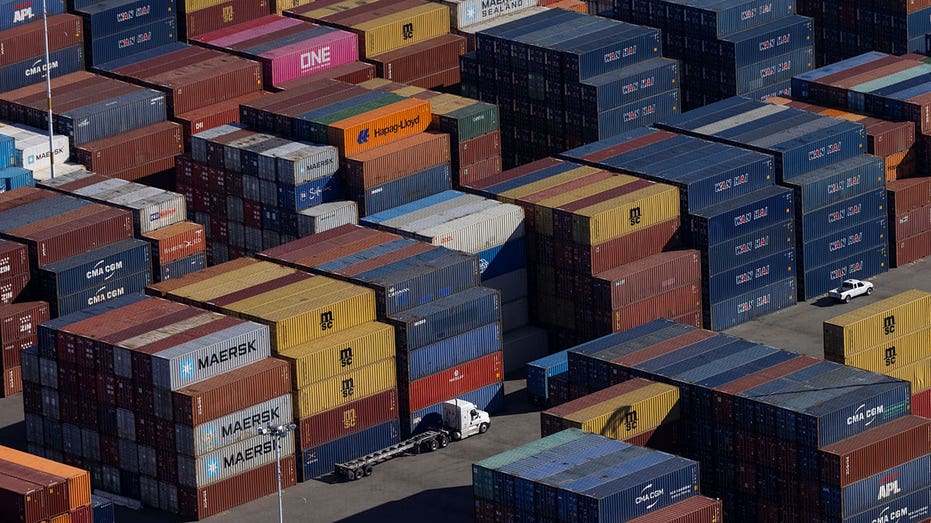Beijing has repeatedly shown the world that it is willing to weaponize its dominance of supply chains, and President Donald Trump had to de-escalate the latest rare-earth dispute during his recent trip to Asia. But rare earths are only a small window into the power that China could have over the U.S. economy as we start adopting tomorrow’s technologies.
Three technologies stand out as especially critical to America’s national security as we look out over the next decade: artificial intelligence, quantum computing and biotechnology. Much like China can exert leverage over U.S. manufacturing through rare earths today, we are at risk of significant and growing Chinese leverage in these foundational technologies.
In fact, American dependence on Chinese supply chains is already becoming evident. American leadership in AI hinges on U.S. data centers maintaining access to specialized chemicals, printed circuit boards and networking equipment from China. China controls critical inputs for quantum computing, including cooling equipment, precision lasers and several essential minerals.
CHINA WEAPONIZED SCIENCE AGAINST THE US. WE'VE FIGURED OUT A KEY ELEMENT THEY MISSED
Perhaps most concerning, China is the sole supplier of at least one critical ingredient for more than a third of nearly 2,000 U.S.-approved medicines, including amoxicillin, one of the most widely prescribed antibiotics, according to a recent study.
The United States still holds powerful cards to play. The U.S. private sector leads the world in spending on research and development, and U.S. capital markets are the deepest and most liquid in the world, capable of financing ambitious projects. The talented American workforce, from machinists to STEM researchers, is well-positioned to build and benefit from the return of critical supply chains.
But creative incentives are needed to unleash these advantages. Our new report details how to do it. The United States must act now and bear the costs to de-risk critical supply chains, or it may pay a much higher price later if tensions escalate. Building on the Trump administration’s progress in rare earths, the U.S. government should incentivize domestic production of several dozen critical inputs for semiconductors and data centers, including various chemicals and hardware components, as well as essential materials for quantum computing and biotechnology, like cooling equipment and drug inputs.
CLICK HERE FOR MORE FOX NEWS OPINION
Government action is also needed to mobilize private investment toward quantum computing and biotechnology. The Department of Defense should use its procurement power, along with contracting milestones, to create demand and competition for the delivery of a viable quantum computer that is powerful and reliable enough to solve real-world problems faster than today’s best supercomputers. Incentivizing private investment into biomanufacturing hubs nationwide would help smaller firms bring new technologies to market by co-funding shared manufacturing infrastructure and easing regulations for expansion.
While economic security begins at home, America is not alone in this race. The European Union, Japan and South Korea have pledged investments that could help strengthen U.S. manufacturing and critical supply chains. When the U.S. government stockpiles essential drug ingredients or critical minerals, it should look to trusted markets. Several allies have capabilities that could help accelerate and expand new sources of critical minerals, as illustrated by the recent framework struck by the United States and Australia.
We know from firsthand experience that the U.S. government can utilize its full toolkit for today’s era of economic warfare and position itself to compete in the technologies that have yet to arrive. U.S. agencies and departments are often too siloed to have a full view of today’s vulnerabilities or those risks just beginning to emerge. Establishing an Economic Security Center would strengthen government coordination, upgrade technical expertise and deepen partnerships with the private sector.
There is strong bipartisan support for strengthening critical supply chains and significant progress upon which to build. We must sustain that momentum to ensure the American economy is able to compete — and win — in this new era of technology.
James D. Taiclet is chairman, president and CEO of Lockheed Martin and a co-chair of the Council on Foreign Relations Task Force on Economic Security.
Justin Muzinich is CEO of Muzinich & Co. and a co-chair of the Council on Foreign Relations Task Force on Economic Security. He served as the U.S. deputy secretary of the treasury from 2018 to 2021.
The post US needs to break China’s supply chain chokehold to win the tech race appeared first on FOX News


